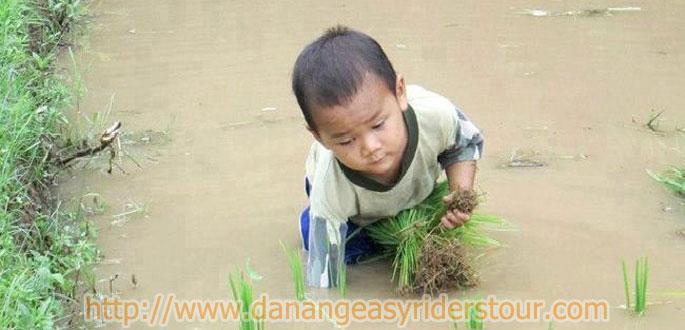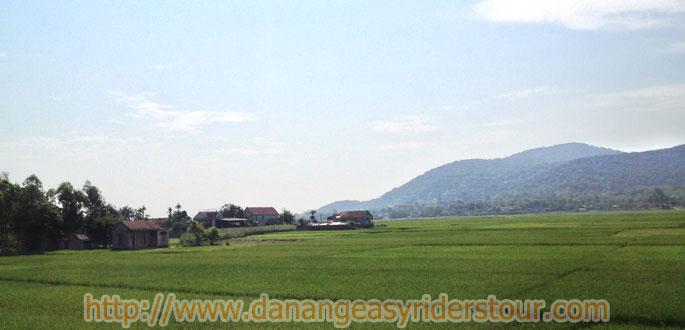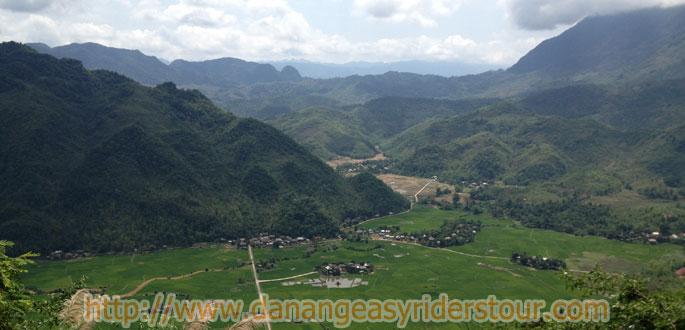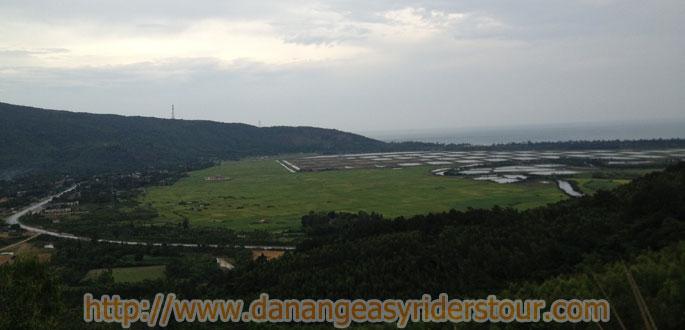Sunday is a holiday for all state Institutions. There are also 8 other holiday each year: January 1st: 1 day
TRADITIONS & FESTIVALS
April 30th Saigon Liberation Day: 1day.
May 1st International Labour Day: 1 day
September 2nd National day of the Socialist Republic of Vietnam: 1 day
TraditionalTet: 4 days (usually occurs between Januany and February. The holiday begins from the evening of the previous lunar year and lasts until the third day of the new year.) Celebrations. travel vietnam.
February 3rd: Foundation day of the Communist Party of Vietnam
May 19th: Birthday of President Ho Chi Minh
Festivals in the North of Vietnam
TET NGUYEN DAN (The Lunar New Year)
Tet has become so familiar, so sacred to the Vietnamese that when Spring arrives, the Vietnamese, wherever they may be, are all thrilled and excited with the advent of Tet, and they feel an immense nostalgia, wishing to come back to their homeland for a family reunion and a taste of the particular flavours of the Vietnamese festivities.
Tet starts on the first day of the first lunar month and is the first season of the new year (according to the lunar calendar), and therefore it is also known as the Tet Nguyen Dan, literally meaning Fete of the First Day, or the Tet Tam Nguyen, literally meaning Fete of the Three Firsts.
The Vietnamese, wherever they may be, are all thrilled and excited with the advent of Tet, and they feel an immense nostalgia, wishing to come back to their homeland for a family reunion and a taste of the particular flavours of the Vietnamese festivities. Those who have settled down abroad all turn their thoughts to their home country and try to celebrate the festivities in the same traditional way as their family members and relatives to relieve their nostalgia, never forgetting the fine custom handed down from generation to generation.
The Tet of the New Year is, above all, a fete of the family. This is an opportunity for the household genies to meet, those who have helped during the year, namely the Craft Creator, the Land Genie and the Kitchen God. As the legend goes, each year on December 23 of the lunar calendar, the Kitchen God takes a ride on a carp to the Heavenly Palace to make a report on the affairs of the household on earth and then returns on December 30 to welcome the New Spring.
Tet is also an opportunity to welcome deceased ancestors back for a family reunion with their descendants. Finally, Tet is a good opportunity for family members to meet. This custom has become sacred and secular and, therefore, no matter where they are or whatever the circumstances, family members find ways to come back to meet their loved ones
TET THUONG NGUYEN (Nguyen Tieu)

According to Buddhist sutras, the first and the fifteenth days (Tet Nguyen Tieu) of every lunar month are Buddha`s Days, when acts of worship are performed in Buddhist shrines and before family altars. Joss-sticks are lit and trays of fruit and other offerings are laid out. Celebrations related to the lunar New Year are over, but the festive Tet atmosphere still remains. The weather is mild despite an occasional drizzle, pagodas and temples are crowded with old people telling their beads, young people praying for happiness in love and luck in business, parents wishing for health and prosperity to their children... Fruit and delicacies offered to Buddha are taken back home to be distributed to all members of the family as "gifts" from the deities.
In traditional astrology the fate of each person is influenced by one particular star. On the 15th day, an act of worship is performed to the star before a three-level altar. On the top level, offerings of incense and food are made to Heaven and Buddha; on the middle level they are made to the tutelary star; on the lowest level are various foods, including rice gruel, which are offered to the "wandering souls".
The origins of the sacred character of this particular date are unclear. One version has it that on the occasion of the first full moon of the year, the emperor of China used to offer a lavish banquet to the most prominent scholars of the country, who would compose poetry to the glory of the monarch, as well as to the beauty of nature.
Indeed in the eyes of men of letters, the moon is at the height of its beauty on that night. Unable to reproduce such moonlight as described by the writer through the lens of camera, we would like to present our readers a few pictures of pilgrims at the Quan Su pagoda in Hanoi on the fifteenth day of the first moon of the year. Whatever its origins, one thing is certain: on this day the heart of everybody is turned to a vision of peace and happiness.
TET KHAI HA
Khai Ha is organized on the seventh day of the first lunar month on which the owner offer their ancestors paper money and clothes and says farewell to them. The neu bamboo pole is lowered and a new yearis welcomed. According to Vietnamese thinking, if the weather is warm and the sun is shining on Khai Ha, man will be healthy and fortunate all the year round.
TET DOAN NGO
Held on the 5th day of the 5th lunar month, Tet Doan Ngo is also called Parasite-Killing Festival. This is a mid-year festival to enhance the prevention of evils and illnesses, and the memory of the ancestors.

TET TRUNG NGUYEN
Also called "All Souls Day", is on the 15th day of the 7th lunar month. On this day, people always come to the pagodas to make lavish offerings to the wandering souls.
TET TRUNG CUU
Or the Double Nine Fete (on the 9th day of the 9th lunar month) comes from China. On this occasion, the Confucian scholars used to take a stroll up the mountains, sipping chrysanthemum liquor. Today, very few localities celebrate this festival.
TET TRUNG THAP
Or the Double Ten Festivies (on the 10th day of the 10th lunar month) is in fact the harvest festival. As for physicians and traditional herbalists, it is the day when the medicinal herbs can absorb both the positive and the negative of the universe.
TET TAO QUAN
The Vietnamese have a custom of seeing off Ong Conga (the Land Genie) and Ong Tao trau_cau(the Kitchen God) on the 23rd day of lunar December. Both go to Heaven to brief Ngoc Hoang (the Jade Emperor) on the life of the owner of the house where they stay, and pray for luck, prosperity and happiness. On New Year`s Eve, both Gods will come back to earth and continue their routine duty of looking after the kitchen of the house.
The custom of worshipping Ong Conga and Ong Tao originated from a myth that dates from ancient time. There was a couple, so poor that they had to go far away to earn their living. They lost each other. After a long time of unsuccessfully looking for her husband, the wife married another man. One day, her old husband unintentionally called at her house to beg for food. The old couple recognized each other. Feeling sad and embarrassed at the situation and unfaithful to the old husband, the wife jumped into the fire and burned to death. The old husband, sorry for the wife, also jumped into the fire, as did the new husband. Hearing about their faithful love, the jade Emperor permitted the three of them to live together as the Kitchen God to enjoy the blessings.
On the Ong Cong and Ong Tao festival day, people usually prepare steamed sticky rice with sugar porridge, truncated cone-shaped cookies made of sticky rice, incense joss sticks and flowers for a worshipping ceremony. They also prepare a basin of water in which they put one big live carp or three small ones. After the ceremony, the carp are released into the pond or the river. This custom has two meanings. First, as popular thinking goes, the carp can swim well and it will pass Vu Moon (Heaven`s gate) to become a dragon. Thus, Ong Cong and Ong Tao ride a carp, i.e. a dragon, to heaven. Second, the custom of releasing the carps refers to a custom of releasing animals, such as birds into the air and the beasts into the forest , which is considered a kindhearted deed to pray for good luck.
The custom of worshipping Ong Cong and Ong Tao as the Land Genie and Kitchen God has a humanist value, reflecting the family happiness. The fire in the kitchen manifests not only the cozy family union, but also the bumper harvest and agricultural development































